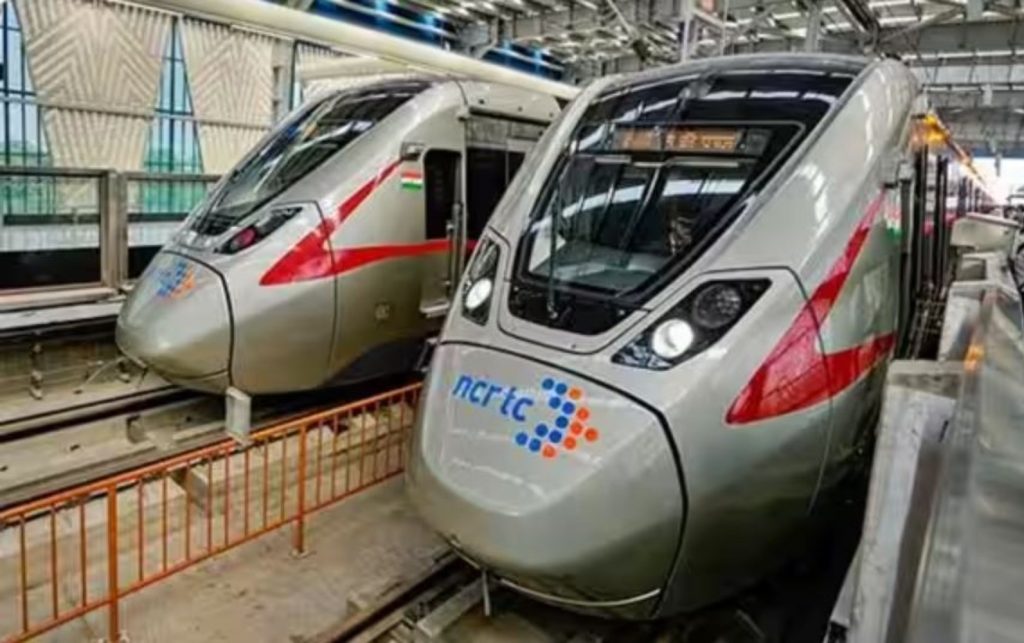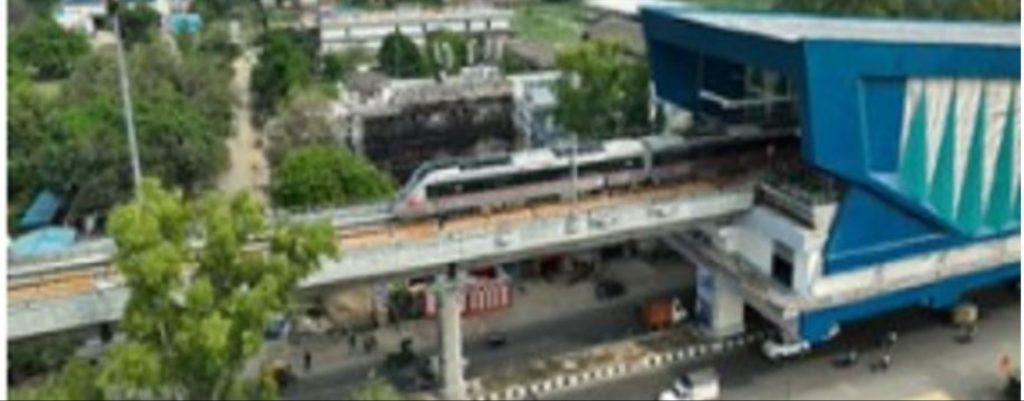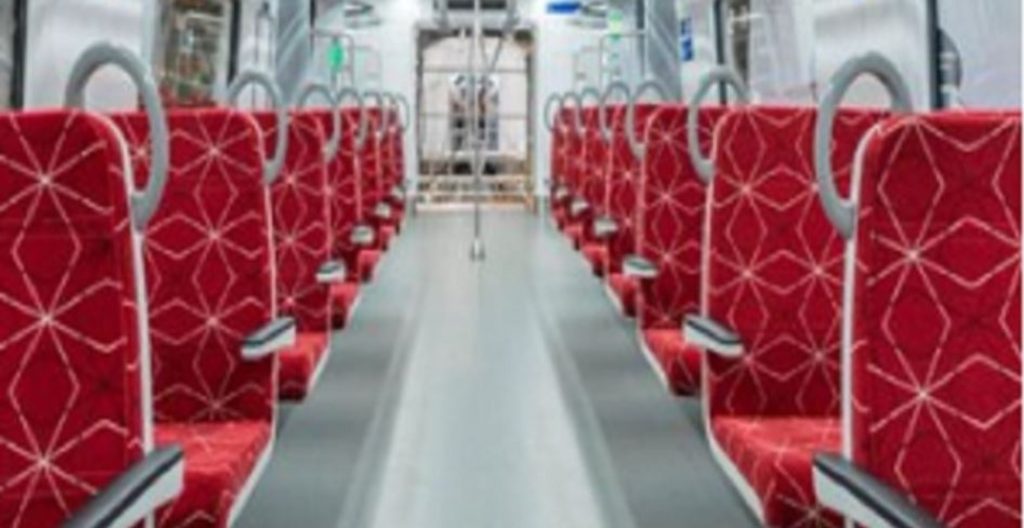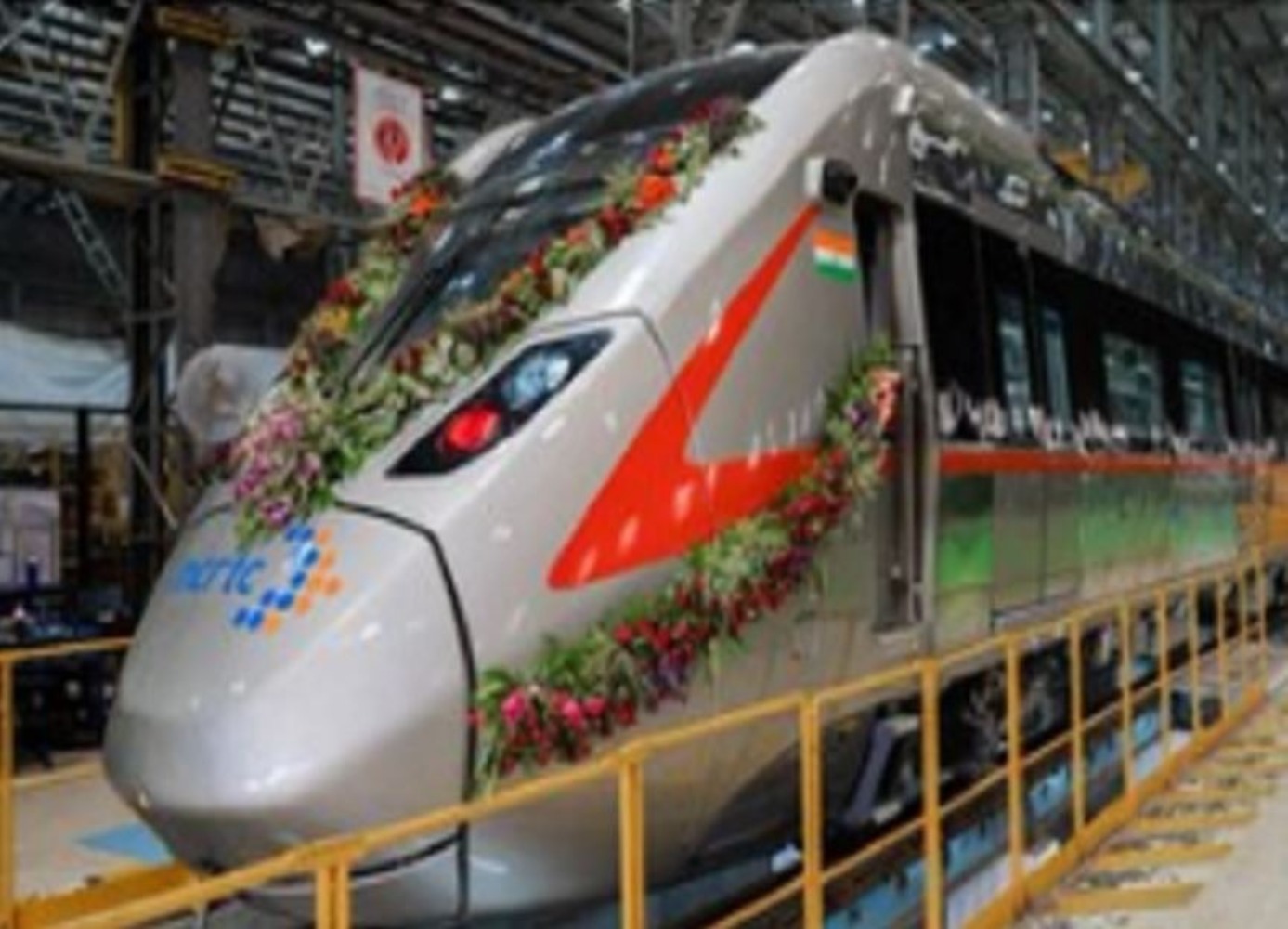Devanjana Mukherjee, Khabri Media
The success of ‘Namo Bharat’ will likely inspire further investment in high-speed rail projects and encourage other states to develop similar regional rapid transit services.

Pic: Social Media
Prime Minister Narendra Modi inaugurated ‘Namo Bharat,’ the country’s first Regional Rapid Train Service on a bright and promising morning in a momentous event for India’s transportation sector. The inauguration took place at the magnificent Delhi metro station marking a significant milestone in India’s efforts to modernize its rail infrastructure and enhance connectivity.
MUST READ: Special trains for interstate travel
‘Namo Bharat’ is more than just a train service; it represents a giant leap forward in the realm of regional travel, promising swift and efficient transit for millions of passengers across the National Capital Region (NCR). Short for “New-Age Mobility and Optimized Travel” Bharat, has been in the works for several years and has finally come to fruition. The inauguration ceremony was attended by numerous dignitaries, railway officials, and excited commuters, who have long awaited a more convenient and efficient mode of transportation.

Pic: Social Media
The 17-km priority section of the Delhi-Ghaziabad-Meerut RRTS Corridor will open for passengers from today, i.e. 21st October, 2023 on the 7th day of the ongoing auspicious Hindu festival. The 17km long section between Sahibabad and Duhai Depot is the priority section, which will have five stations, Sahibabad, Ghaziabad, Guldhar, Duhai, and Duhai Depot.
Driven by electric traction, RRTS is the region’s greenest mode of transport, having a design speed of 180 km/hr and an operational speed of 160 km/ hr. It will take more than one lakh private vehicles off the road and is estimated to reduce ~2,50,000 tonnes of carbon dioxide in vehicular emissions per year Its first corridor is 82 km long and under construction between the Delhi-Ghaziabad-Meerut corridor.
As per the official statement, the trains would be operational from 6 am to 11 p.m. To start with, the frequency of trains would be 15 minutes and can be increased to every 5 minutes. Lifts, escalators, Foot Over Bridges (FOBs) and even travellators are being provided to move from one mode to another. Moreover, there will be a premium-class car with spacious seating, ample legroom, coat hangers, Wi-Fi, overhead storage, and charging options at each seat.

Pic: Social Media
Being developed at a cost of Rs. 30,000 crores, it is a testament to India’s commitment to progress and development, showcasing the ability to implement transformative projects that will benefit the country and its citizens for generations to come. This regional rapid train service is a unique example of modernization, efficient transportation, and sustainability.
As the project gains momentum and the trains start ferrying passengers, it will not only reduce travel times but also contribute to economic growth, job creation, and a cleaner environment. The initiative stands as a symbol of India’s capacity to embark on transformative projects and its commitment to progress and development. This historic event paves the way for future high-speed rail projects and underscores India’s determination to create a brighter, more connected future for all its citizens.




